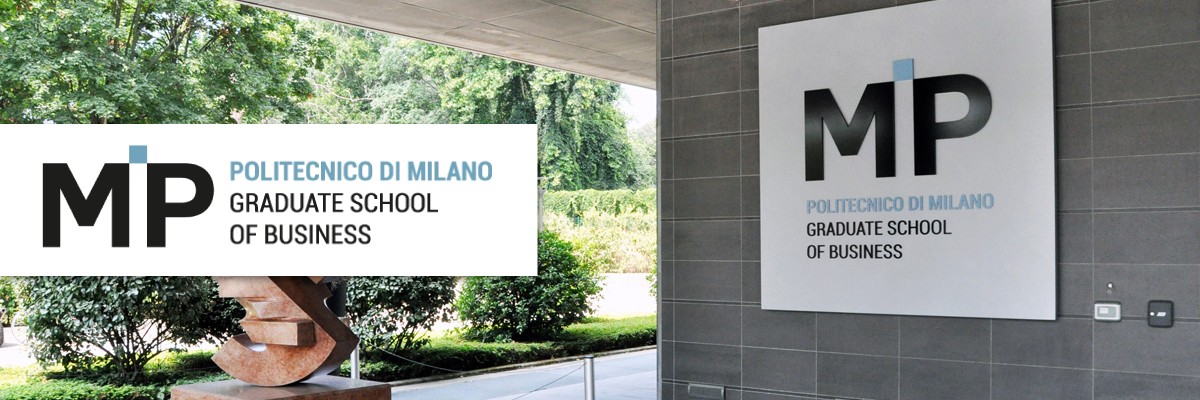Higher education institutions around the world are catching up to the technology disruption unfolding in the financial industry, actively introducing programs especially designed to cater to rising demand for new skills and knowledge in the field of fintech.
In Europe, many of the region’s most notable Master’s degrees in fintech are offered by prestigious UK-based universities. This is unsurprising considering that the country has one of the most advanced and largest fintech ecosystems in the world. That being said, other universities across the region have also started offering comprehensive programs that tackle critical topics and trends ranging from blockchain technology and artificial intelligence (AI), to data science, cybersecurity and regulation.
Today, we look at 10 of the most noteworthy master’s degrees in fintech in Europe, delving into how these programs and institutions are differentiating themselves from their counterparts and the opportunities each offers. For this list, we focus on programs taught exclusively in English and which are open to international applications.
MSc in Financial Technology – Imperial College London, England

Imperial College London, England, Source: Wikipedia
The MSc Financial Technology program of the Imperial College Business School in England, is a one-year full-time program providing graduates with the necessary skills and knowledge to embark on a career in fintech or in the financial services sector.
The program brings together highly relevant modules and electives to provide students with key quantitative and analytical skills, knowledge of the financial sector and provides practical experience through immersive learning.
Students will get to understand, execute and possibly develop disruptive financial innovations using appropriate tools and techniques. They will be able to demonstrate analytical skills to create, manage and interrogate large data sets applicable to the finance sector and build up a critical awareness of current issues in the fintech landscape. A range of programming tools will facilitate live implementations of financial models and allow them to analyze and evaluate investment decisions and data.
MSc in Finance, Technology and Policy – University of Edinburgh, Scotland

University of Edinburgh, Scotland, Source: University of Edinburg
The MSc in Finance, Technology and Policy program of the University of Edinburg in Scotland, runs for one academic year, starting in mid-September and ending in August. The program offers a unique degree sitting at the intersection of the three most important drivers of a modern economy:
- Financial services/markets;
- Technology; and
- Policy.
Courses are designed to provide students with a detailed analysis of modern financial markets and the transformation of the financial services industry against the backdrop of technological and policy innovations.
The program applies principles of financial economics, sociology/philosophy, and practical programming/machine learning and big data analysis to help student focus on solving real problems and developing the skillsets that are relevant for employers now and in the future.
Students will also have the opportunity to tailor their degree to include other relevant aspects of operating within the financial technology space, and will get to work with industry partners to develop cutting-edge solutions to live challenges as part of student consultancy projects sponsored by financial institutions.
MSc in Financial Technology – University College London, England

University College London, England, Source: University College London
The MSc Financial Technology program of the University College London (UCL) in England focuses on developing technology literate financial services professionals. The program emphasizes the systematic understanding of new digital business models in financial services, how innovation through technology is changing business practices, quantitative finance skills and the application of emerging technologies to financial services.
Created by the UCL Centre for Blockchain Technologies, the program is designed to help students gain a critical awareness of current issues and the development of financial systems and markets. Students will get to develop strong quantitative finance, financial technology and business and strategy skills related to the financial services industry.
At the end of this program, students will be able to perform analytical tasks basic to the financial services industry (focused on quantitative finance), including the analysis and interpretation of data and big data. They will also be able to use strategic thinking on how emerging technologies are changing the financial services landscape, and deploy machine learning tools and design blockchain technology solutions.
MSc in Financial Technology – University of Birmingham, England

University of Birmingham, Source: University of Birmingham
The MSc in Financial Technology program of the University of Birmingham in England has been created for talented graduates and professionals with experience in financial services, treasury management, science and technology. The course is especially relevant to:
- Top-performing graduates in finance, economics, science and engineering;
- Those currently employed in finance and FinTech who wish to develop their expertise; and
- Those with a related academic background who wish to develop their skills in this sector.
Students will be working in small teaching groups, allowing them to work closely with industry experts, staff and fellow students. They will also work on real time industry projects which combine theory with intensive practice and industrial engagement. Example projects include: setting up of crowd funding platforms, application of blockchain services in reducing currency frauds, developing algorithmic-trading applications and development of financial services applications.
MSc in Financial Technology with Data Science – University of Bristol, England

Wills Memorial Library, University of Bristol, Source: University of Bristol
From crowdfunding to cryptocurrencies, and from automated trading to Alipay, recent innovations in financial technologies have revolutionized the way we spend, save, borrow, and invest.
The new MSc in Financial Technology with Data Science program by the University of Bristol in England offers an opportunity to join the financial technology revolution. Students will learn the key design features of a number of financial technology applications and will develop skills to implement, assess and engineer these technologies. Students will also develop an understanding of the computational, statistical and machine learning principles necessary for insightful large-scale data analysis used in data-driven finance.
Hosted by a world-leading engineering faculty, this is a technology-focused MSc and not a finance or accounting program that is traditionally provided by a business school.
MSc in Fintech and Financial Markets – University of Nottingham, England

University of Nottingham, Source: Wikipedia
The MSc in Fintech and Financial Markets program by the University of Nottingham in England is designed to provide students with an understanding of contemporary issues and conceptual frameworks used to adopt financial technology in organizations. Students will build a solid foundation of global financial markets, principles of fintech and blockchain as well as coding and data analytics for finance and fintech.
This course will enable students to become a finance professional who understands what is driving the fintech evolution, with the ability to shape financial markets and transform ideas to create new fintech products. The course will equip them with coding and data analytics skills to understand fintech products and their place in financial markets.
They will be applying knowledge, tools and techniques to resolve issues in new and diverse situations within the finance disciplines, evaluate the rigor and validity of published research, and assess its relevance to the practice of finance.
In their third semester, students will complete a hands-on consultancy project, giving them an opportunity to use the theories and knowledge they’ve gained to produce a meaningful piece of work.
MSc Fintech – Dublin Business School, Ireland

Dublin Business School, Source: Dublin Business School
The MSc Fintech program by the Dublin Business School in Ireland is a new interdisciplinary program that focuses on finance, data analytics and computing. It is designed to appeal to graduates seeking to gain exposure to fintech.
The program focuses on practical skills in core areas such as financial analytics, advanced databases, disruptive technologies, web technologies and security while also offering applied skills in contemporary topics such as data analytics, and financial applications.
The specific program aims are:
- To enable learners to develop in-depth knowledge and analytical skills in current and developing financial technologies;
- To provide learners with a deep and systematic knowledge of the management of Financial Technology in organizational and regulatory contexts;
- To facilitate the development by the learner of applied skills that are directly complementary and relevant to the workplace;
- To identify and develop autonomous learning skills for the learner;
- To develop in the learner a deep and systematic understanding of current issues of research and analysis;
- To enable the learner to identify, develop and apply detailed analytical, creative, problem solving and research skills; and
- Provide the learner with a comprehensive platform for career development, innovation and further study.
Master in Finance and Fintech – Bologna Business School, Italy

Bologna Business School, Source: Bologna Business School
The Master in Finance and Fintech by the Bologna Business School in Italy aims to enable young professionals to deal with the digital transformation that is disruptively changing the financial market, by combining traditional financial skills with deep understanding of new digital technologies.
The program is designed for graduate students with excellent knowledge of English, interested in fintech as they will learn along with the traditional finance skills, new competencies in new technologies such as artificial intelligence (AI), big data analytics, blockchain, with the prospect of professional growth in managerial functions connecting technical specialists and finance departments.
Courses include banking and regulation, behavioral finance, data mining, digital economics, entrepreneurial finance, financial markets and instruments, fundamentals of cybersecurity, risk management and derivatives, trends in the fintech industry, insurance management, customer and marketing analytics, and digital transformation.
The program, which is entirely in English, includes two classroom-based terms and concludes with a final internship of 500 hours. Students can also follow this master program online.
International Master In Fintech, Finance and Digital Innovation – MIP Politecnico di Milano School of Management, Italy

MIP Politecnico di Milano School of Management, Source: MIP Politecnico di Milano School of Management
The International Master in Fintech, Finance and Digital Innovation by the MIP Politecnico di Milano School of Management in Italy is designed to provide students with all the skills and competencies to face the fintech revolution.
The program builds on close collaborations with the financial world to combine theoretical competencies on methods and technologies with the expertise of the financial world and fintech applications and opportunities.
It targets young graduates or candidates with maximum three years of work experience, who want to specialize in the fintech area by deepening their knowledge of digital technologies and their application in the financial world, e.g. banks, insurance companies, asset management.
The aim is to train professionals who are able to understand and manage the digital transformation building on different skills and capabilities: knowledge of the financial system and of financial intermediation, information technology skills as well as quantitative methods applied to finance.
The master is entirely taught in English. Partners of the program include Accenture, Deloitte and IBM.
Master of Science in Financial Technology and Computing – USI Università della Svizzera italiana, Switzerland

USI Università della Svizzera italiana, Source: Wikipedia
The Master of Science in Financial Technology and Computing is offered jointly by the Faculty of Informatics and by the Faculty of Economics of the Università della Svizzera italiana (USI) situated in Lugano, Switzerland.
This unique cross-discipline program combines USI’s world-leading expertise in finance and informatics and offers career prospects that range from fintech startups to banks and insurers to hedge funds.
The program has been designed to provide graduates with an informatics background with the necessary tools and skills for understanding fundamental problems in finance while, at the same time, learning about advanced tools and techniques in informatics to be applied in finance. Courses include blockchain and digital currencies, data analytics for finance, alternative investments, financial modelling, and launching fintech ventures.
This is full-time study program that spreads over four semesters (usual duration two years) and which is entirely offered in English. After the successful completion of the program, students are awarded a Master of Science in Informatics and Economics, Major in Financial Technology and Computing.





